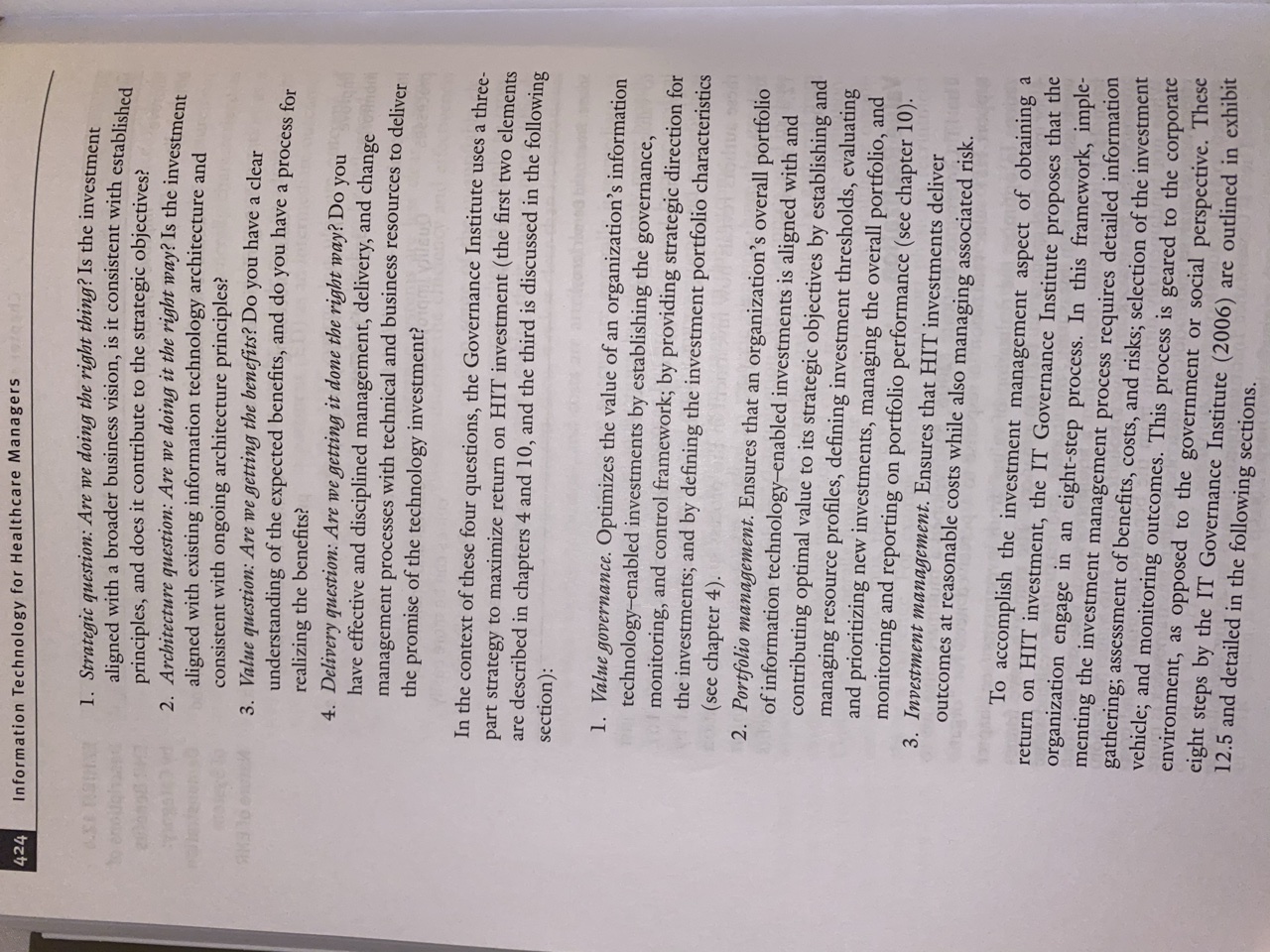The IT Governance Institute developed a multipart framework to support HIT value realization in response to a perceived need by organizations trying to evaluate and assess HIT investment. Refer to the course case study analysis: EMR Implementation at Stanford Hospital & Clinics. Sarah has been asked to evaluate EMR from a value realization framework. From personal reading and analysis of the case, respond to each of the four questions as it relates to SHC's investment in EMR. Definitional information and explanation related to the four questions can found on page 424 of the textbook.
From personal reading and analysis of the case, respond to each of the four questions as it relates to Hocking Valley Community Hospital's investment in integration of Analytics in EHR. Definitional information and explanation related to the four questions can found on page 424 of the textbook.
References
Glandon, G.L. Smaltz, D.H. and Slovensky, D.J. (2020). Information Systems for Healthcare Management. (9th ed.). Chicago, IL: Health Administration Press
424 Information Technology for Healthcare Managers 1. Strategic question: Are we doing the right thing? Is the investment to enoughhas aligned with a broader business vision, is it consistent with established principles, and does it contribute to the strategic objectives? 2. Architecture question: Are we doing it the right way? Is the investment aligned with existing information technology architecture and consistent with ongoing architecture principles? 3. Value question: Are we getting the benefits? Do you have a clear understanding of the expected benefits, and do you have a process for realizing the benefits? 4. Delivery question: Are we getting it done the right way? Do you have effective and disciplined management, delivery, and change management processes with technical and business resources to deliver the promise of the technology investment? In the context of these four questions, the Governance Institute uses a three- part strategy to maximize return on HIT investment (the first two elements are described in chapters 4 and 10, and the third is discussed in the following section): 1. Value governance. Optimizes the value of an organization's information technology-enabled investments by establishing the governance, monitoring, and control framework; by providing strategic direction for the investments; and by defining the investment portfolio characteristics ( see chapter 4). 2. Portfolio management. Ensures that an organization's overall portfolio of information technology-enabled investments is aligned with and contributing optimal value to its strategic objectives by establishing and managing resource profiles, defining investment thresholds, evaluating and prioritizing new investments, managing the overall portfolio, and monitoring and reporting on portfolio performance (see chapter 10). 3. Investment management. Ensures that HIT investments deliver outcomes at reasonable costs while also managing associated risk. To accomplish the investment management aspect of obtaining a return on HIT investment, the IT Governance Institute proposes that the organization engage in an eight-step process. In this framework, imple menting the investment management process requires detailed information gathering; assessment of benefits, costs, and risks; selection of the investment vehicle; and monitoring outcomes. This process is geared to the corporate environment, as opposed to the government or social perspective. These eight steps by the IT Governance Institute (2006) are outlined in exhibit 12.5 and detailed in the following sections.Questions (Refer to page 424 in the textbook] Yes No Provide a brief explanation for your response (Three to four sentences.) Strategic Question: Are we doing the right thing? Architecture Question: Are we doing it the right way? Value Question: Are we getting the benets Delivery.r Question: Are we getting it done the right way








